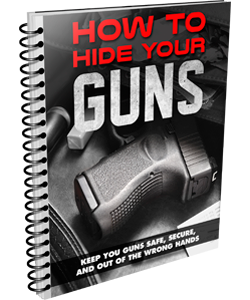Winter hunting is an exhilarating but demanding pursuit that requires absolute dedication. The icy wilderness will test your endurance, patience, and adaptability. As snow crunches beneath your boots and your breath forms frosty clouds, your target wildlife vanishes into the snowy landscape, leaving you to rely on your training. Success in this environment requires more than skill—it demands careful preparation to meet winter’s unique challenges.
This guide can help you gear up, stay warm, and fine-tune your technique during winter hunting season. With the right gear and knowledge, you’ll be ready to thrive even in the harshest conditions.
The Distinct Challenges of Winter Hunting
Winter hunting presents unique challenges that can hinder your hunt’s success. The cold weather will affect your body, equipment, and strategies without proper preparation. As such, it’s essential to learn how to adjust to situations in real time. By understanding and adapting to the conditions, you can turn potential setbacks into opportunities for success.
Gear Challenges in Cold Weather
Cold weather pushes your physical limits and tests your gear’s reliability. Here’s how to achieve peak performance:
- Firearm Reliability: Freezing temperatures thicken lubricants, slowing firearm parts. Use weather-specific lubricants to prevent malfunctions.
- Bullet Trajectory: Cold air is denser and reduces bullet velocity over long distances. Study ballistic charts and test your setup in similar conditions.
- Clear Optics: Frost and fog obscure visibility. Apply anti-fog spray and use lens covers to maintain a clear view.
💡 Pro Tip: Test all your gear in freezing conditions before heading into the field.
For more tips on cold-weather ballistics, visit National Shooting Sports Foundation (NSSF).
Hunting in snow requires deliberate movements and adjustments to maintain balance in slippery or uneven ground. Stay balanced and mobile with these tips:
- Prone Positioning: Use a ground pad to insulate yourself from the cold and stay focused while aiming.
- Support Tools: Stabilize your shots on icy ground with bipods or shooting sticks.
- Flexible Layers: Wear lightweight, insulated fabrics to keep muscles warm and mobile.
Spotting Wildlife in Snowy Environments
Spotting animals in a snowy landscape can be tricky, as wildlife blends seamlessly into the background. In addition, snow glare complicates visibility.
- Reduce Glare: Use polarized sunglasses or anti-glare scope lenses.
- Focus on Movement: Look for subtle signs like shadows, tracks, or rustling in the brush.
- Move Quietly: Slow, deliberate steps minimize noise and ensure you don’t startle or alert your prey.
Essential Gear for Winter Hunting Success
The right gear makes all the difference when you’re against freezing conditions. Here are some tried-and-tested equipment that can help you withstand the cold:
- Moisture-Wicking Layers: Keep sweat away from your skin to regulate body temperature.
- Waterproof Gloves and Boots: Protect hands and feet from cold, wet conditions.
- Thermal Wraps for Rifles: Prevent freezing that can affect performance.
- High-Calorie Snacks and Warm Drinks: provide the needed energy so you can stay focused during long hunts.
For a detailed list of gear essentials, visit Field & Stream’s winter gear guide.
Staying Warm and Focused in the Cold
Staying warm in the cold weather is crucial for accuracy and focus. These strategies can help you resist the low temperatures:
- Layer Effectively: Use a moisture-wicking base layer, an insulating mid-layer, and a waterproof outer shell.
- Stay Fueled: High-calorie snacks and warm beverages can sustain your energy for the long haul.
- Practice in Cold Conditions: Simulate real hunting scenarios in controlled, freezing environments to prepare for challenges.
Refining Your Winter Hunting Technique
Winter hunting demands sharper skills and specialized practice. You can fine-tune your approach using these approaches:
- Test Your Gear: Ensure rifles, optics, and clothing perform reliably in the cold before you head out.
- Experiment with Positions: Practice prone, kneeling, or supported stances continually for better precision. Note if small adjustments can help you get a better shot off.
- Simulate Field Conditions: Train in environments that mimic the terrain you’ll encounter.
Prepare to Conquer the Cold
Winter hunting is more than a test of endurance; it’s an opportunity to grow as a well-rounded hunter. Equip yourself with the right tools and knowledge, and you can transform winter’s challenges into triumphs.
PS: How do you prepare for winter hunting? Share your tips or favorite moments with us—we’d love to hear from you!
FAQs
- How do I prepare for winter hunting?
Test your gear in cold conditions, layer with moisture-wicking and insulated fabrics, and practice your shooting technique on snowy terrain. Research your hunting area and pack calorie-dense snacks for energy. - How can I maintain accuracy in freezing temperatures?
Use weather-specific lubricants to keep firearms reliable. By testing your setup, account for changes in bullet trajectory due to dense, cold air. Keep optics frost-free with anti-fog products. - What should I wear for warmth and mobility?
Start with a moisture-wicking base layer, add a warm mid-layer like fleece, and finish with a waterproof, windproof shell. Opt for lightweight materials that keep you mobile. - How do I spot wildlife in the snow?
Focus on shadows, tracks, or subtle movements. Wear polarized sunglasses to reduce glare, and hunt during early morning or late afternoon when contrast is clearer. - What safety precautions should I take?
Inform someone of your plans, including your location and return time. Carry a GPS device, emergency kit, and fire starter. Dress for the conditions and be ready for sudden weather changes.






Retro Bowl is the game that combines the timeless charm of classic pixelated visuals with the thrill of modern football strategy